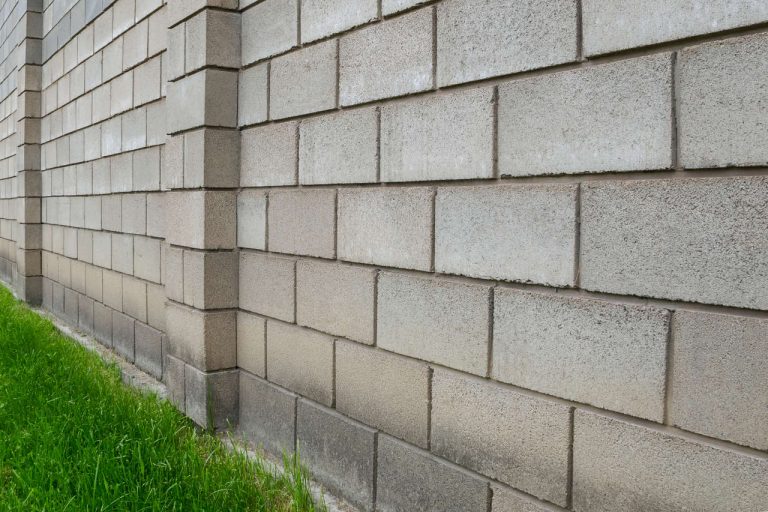Block walls have been the cornerstone of construction and landscaping for decades. It’s difficult to imagine a building or garden without them. Block walls have become so ubiquitous that it’s easy to overlook their importance. In this article, we explore the various types, advantages, maintenance, sustainability, and potential recycled materials in their production.
Types of Block Walls
Block walls come in a variety of shapes and sizes, depending on their purpose. Common types of block walls are:
- Concrete Retaining Walls: Concrete block retaining walls use the weight of the soil to create stability while also providing support for the surface
- Concrete Block Walls:These types of walls are made from cement, water, sand, and aggregates. They are robust, durable, and require minimal maintenance. The concrete block walls can also be customized into different shapes and sizes to fit various purposes.
- Masonry Block Walls: These walls are made from a combination of cement and metals such as clay and sand. They are ideal for buildings that require insulation and soundproofing, and they are easy to work with. Masonry block walls can also be used for fire protection.
- Retaining Block Walls: These types of walls are designed to hold back soil or water along a sloping terrain. They are made from reinforced concrete blocks or concrete with reinforcements. Retaining walls are essential in landscaping to prevent erosion, as well as in construction to support structures.
Advantages of Block Walls
- Durability: Block walls are renowned for their robustness and longevity, capable of withstanding harsh environmental conditions and maintaining their structural integrity over time.
- Versatility: They can be molded into various shapes and sizes to suit a range of architectural designs and landscaping needs.
- Cost-Effective: Block walls, particularly concrete block walls, are relatively inexpensive to produce and install, making them a cost-effective choice for many construction projects.
- Low Maintenance: Once installed, these walls require minimal maintenance, adding to their appeal as a long-term solution.
- Insulation: Especially in the case of masonry block walls, they provide excellent insulation, helping to maintain internal temperatures and reduce energy costs.
- Fire Resistant: Block walls offer high resistance to fire, enhancing the safety of buildings.
- Noise Reduction: Block walls serve as effective noise barriers, making them ideal for buildings situated in noisy environments.
Maintenance and Repairs
Block walls require minimal upkeep, but regular maintenance is essential to extend their lifespan:
- Regular Inspection: Regularly inspect the block wall for any signs of damage such as cracks, leaks or wear and tear. Early detection of potential issues can save costly repairs in the future.
- Cleaning: Keep your block walls clean. Regular washing with a mild detergent and water can help to keep the block wall looking fresh and prevent the buildup of dirt, dust, or mold, which could degrade the wall over time.
- Sealing: Consider applying a high-quality sealer to the block wall surface. This can help to protect the wall from moisture absorption, which can lead to cracking and other damage.
- Repair Minor Damage Promptly: If you discover small cracks or damage, repair them promptly to prevent them from becoming a bigger issue.
- Pest Control: Regular pest control is essential, particularly in areas prone to termites or ants, which can cause significant damage to block walls.
- Drainage: Ensure proper drainage around the block walls to prevent water accumulation. Water can weaken the block wall structure and cause it to collapse.
- Vegetation Control: Keep vegetation away from your block walls. Plants and trees can cause damage over time as roots grow and expand.
- Protect from Harsh Elements: If possible, protect your block walls from harsh weather conditions such as heavy rain, storms, or extreme temperatures, which can accelerate the degradation of the material.
Sustainability and Block Walls
Today, we live in a world where sustainability is a top priority. It is essential to consider the environmental impact of construction materials. Block walls are eco-friendly because they use natural materials and do not produce harmful emissions. Moreover, many block wall manufacturers use recycled materials to produce their blocks, which decrease waste and reduce the impact of demolition.
Conclusion
Block walls are versatile, durable, and have various uses in construction and landscaping. They are easy to work with and require little maintenance. Proper maintenance is critical to extend their lifespan, and common issues are cracking, leaks, and efflorescence. Block walls are also sustainable and eco-friendly, with the potential for the use of recycled materials.
Block walls are an investment, and it’s essential to choose the right blocks for your project. By considering the various types, advantages, and maintenance requirements outlined in this article, you can make an informed decision. Block walls offer an array of choices and solutions that can fit any building or outdoor project. Go ahead and explore block wall options for your construction or landscaping project today.

